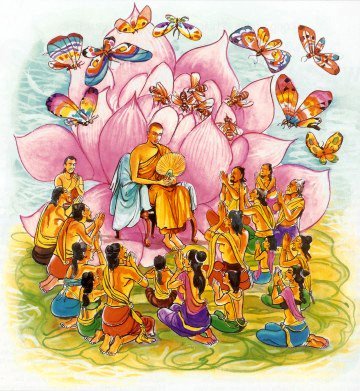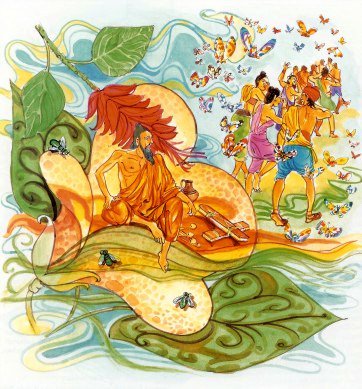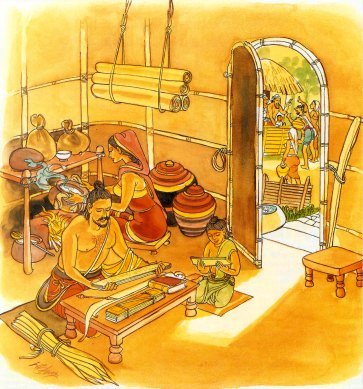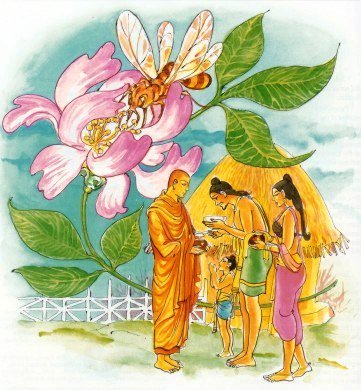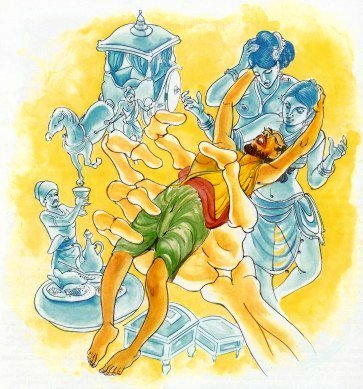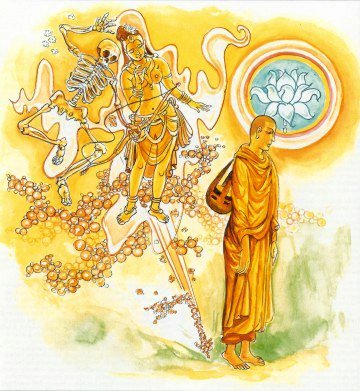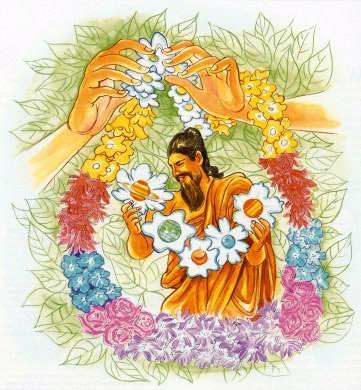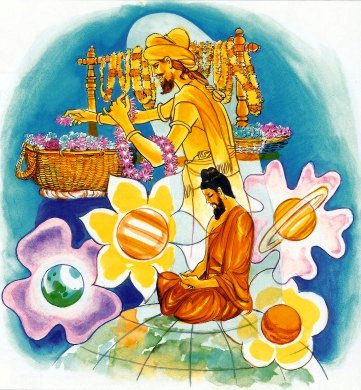As from a mass of flowers
many a garland may be made,
so by one born mortal
should many good deeds be done.
Explanation: The deft maker of garlands takes a variety of flowers. Out of these he creates garlands of different strands and variegated arrangements. In the same way, those who are born into this world should, out of their lives, create good, wholesome, meritorious actions of a vast variety. Continue reading “Verse 53. Those Born Into This World Must Acquire Much Merit”


